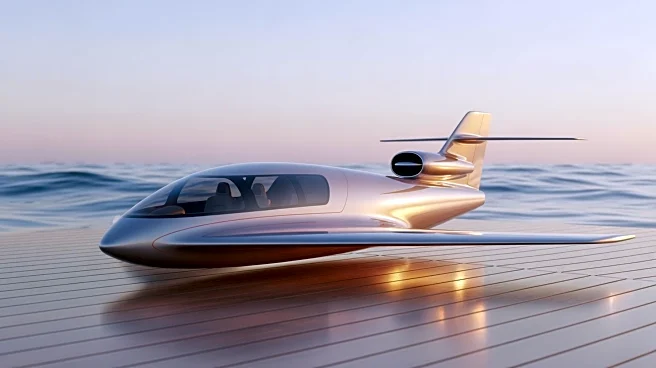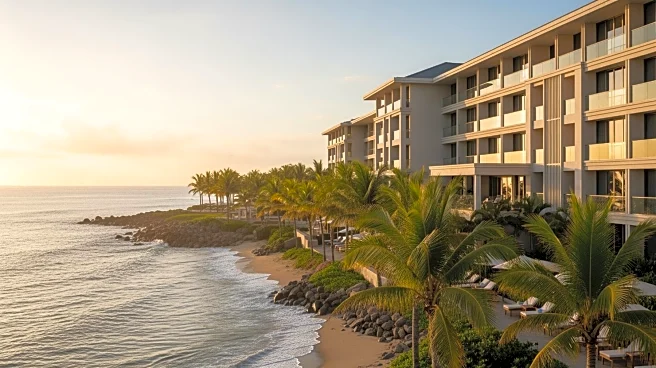What's Happening?
Regent, a company known for its innovative approach to transportation, has showcased a full-size mock-up of its Viceroy Seaglider at an airshow in Dubai. The Seaglider, a 12-passenger electric vehicle,
is set to begin test flights early next year and is touted as the largest electric vehicle to fly. The prototype is currently undergoing testing in Rhode Island. Regent has secured over $10 billion in commercial orders and $15 million in contracts with the U.S. Marine Corps. The Seaglider promises low-cost, low-noise, and low-emission travel, with a top speed of 300 kph and a range of up to 2,600 km for the hybrid version. It operates using ground-effect aerodynamics, allowing it to travel efficiently just above the water surface. Regent is also developing a larger 100-passenger version called the Monarch. The company plans to establish a manufacturing and training facility in Abu Dhabi, supported by a partnership with the UAE's Strategic Development Fund.
Why It's Important?
The introduction of the Viceroy Seaglider represents a significant advancement in sustainable transportation, particularly for coastal regions. By offering a low-emission alternative to traditional air and sea travel, Regent's Seaglider could transform how people commute between coastal cities, reducing environmental impact and travel costs. The partnership with the UAE and the establishment of a facility in Abu Dhabi highlight the strategic importance of the Middle Eastern market, where coastal living is prevalent. This development could lead to increased economic activity and job creation in the region, as well as bolster the UAE's position as a hub for innovative transportation solutions. The Seaglider's ability to operate in various conditions and its classification as a maritime vessel rather than an aircraft could simplify regulatory hurdles, paving the way for widespread adoption.
What's Next?
Regent is working with global authorities to ensure Seagliders are recognized as maritime vessels, which could streamline regulatory processes. The company is also exploring a service between Dubai and Abu Dhabi, with fares expected to be competitive with existing transportation options. As testing progresses, Regent anticipates further announcements from local operators and regulatory bodies, which could accelerate the deployment of Seagliders in commercial and defense sectors. The establishment of a manufacturing facility in Abu Dhabi will support these operations and potentially lead to further collaborations with regional partners.
Beyond the Headlines
The Seaglider's innovative design and operational capabilities could redefine maritime travel, offering a unique blend of speed, efficiency, and environmental sustainability. Its classification as a maritime vessel rather than an aircraft could influence future transportation regulations, encouraging more companies to explore similar technologies. The focus on coastal connectivity aligns with global trends towards urbanization and sustainable development, potentially influencing urban planning and infrastructure investments in coastal cities worldwide.









